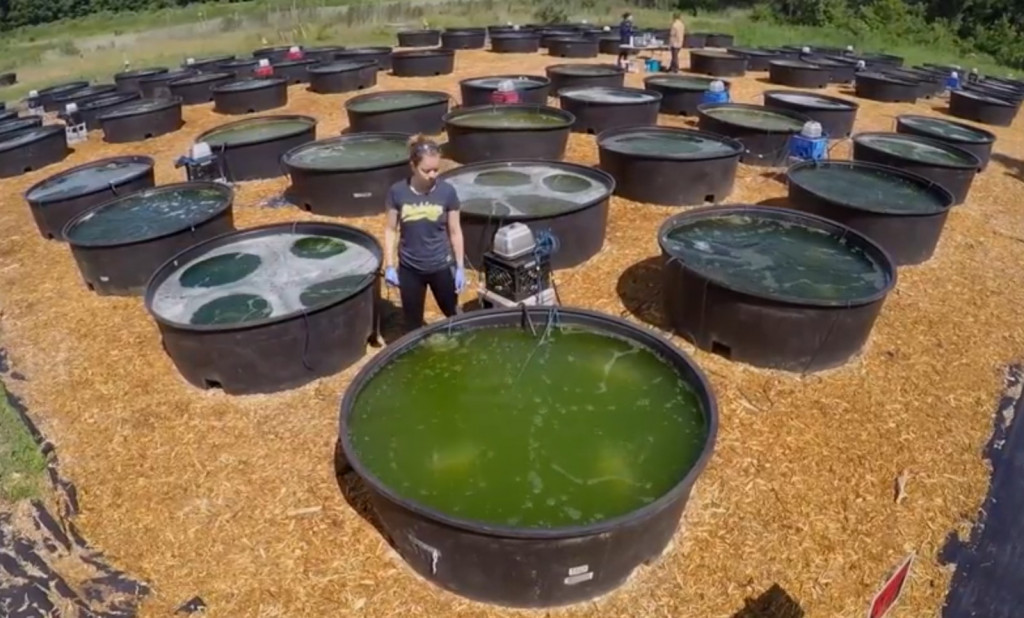Instead of going in the trash or, perhaps, a compost heap, a new study proposes that used coffee grounds could help feed biodiesel-producing algae.
Published in the journal Renewable and Sustainable Energy Reviews, the study was first spotted by New Atlas, which noted that coffee grounds can already be turned into biofuel—no algae necessary. But it's more complex process than producing fuel from algae, which is also nothing new.
In this process, algae is grown on an inert material such as polyurethane foam or nylon, feeding on nutrients added to the water, and producing oil as a byproduct. That oil can then be turned into fuel.

University of Michigan algae biodiesel project
Researchers at the United Kingdom's Aston University experimented with using coffee grounds as both the growth medium and nutrient for Chlorella vulgaris algae. After some tinkering with the process, they found the coffee-fed algae generated "enhanced biodiesel that produces minimal emissions and good engine performance, and meets U.S. and European specifications," per the study.
While this remains purely experimental, it's a novel example of how this year's energy pinch, caused in part by Russia's invasion of Ukraine, could be a boon for new biofuels investment. It's surely spurring more attention to the sector. Chevron broke ground last week on a biorefinery expansion in Germany. That site uses feedstocks, and including the carbon dioxide to produce it, says it could cut greenhouse gas emissions between 40% and 93% compared to fossil diesel. BP also is betting big on biofuels with the purchase last month of Archaea Energy, which makes biogas that can be used interchangeably with natural gas.

2014 Peterbilt 579
Internal-combustion vehicles will remain in the fleets for decades and need fuel, and at times it appears that regulators aren't focused enough on retiring them. Low-emission biofuels could help fill the gap.
A wide range of sources are being tested—beef-fast biodiesel from Cargill at Love's, for instance. Fast-food fryer fat has shown a second life in biodiesel.
While several studies have suggested that corn-based ethanol is worse for global warming than gasoline, studies regarding well-to-wheels emissions of biodiesel have pointed in a more positive direction, indicating research like this is worth pursuing—provided it works hand-in-hand with new-vehicle policy.











